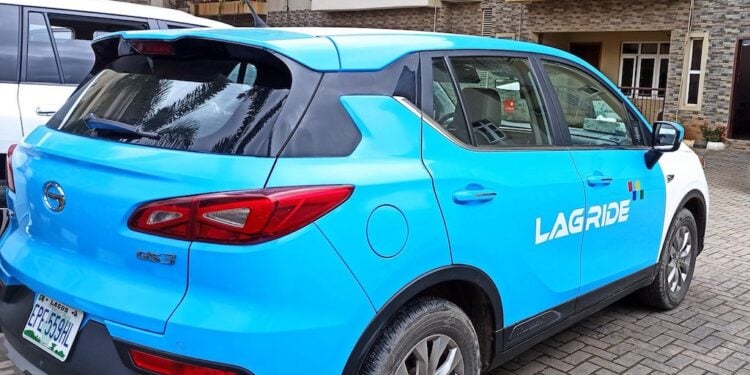Lagos is taking a bold leap towards cleaner and more sustainable urban transportation with the expansion of LagRide’s fleet to include 100 new electric vehicles (EVs). This move is being hailed as a major advancement in the state’s ongoing commitment to technology-driven mobility, urban environmental well-being, and economic opportunity for residents. Lagos, Africa’s economic powerhouse and most populous city, finds itself at the frontlines of innovation as it tackles challenges in congestion, pollution, and reliable transport access.
Announced at a recent press conference in Ikeja by LagRide’s Executive Director, Adeniyi Saliu, the initiative comes as part of the Lagos State government’s broader transportation reforms. These reforms are being championed in synergy with President Bola Tinubu’s agenda to modernize and “green” transit systems across Nigeria’s bustling cities.
“The deployment of these new electric vehicles is more than just a technological upgrade—it’s about creating a smarter, cleaner ecosystem for Lagos,” Saliu said, addressing journalists and stakeholders. According to company details, each EV in the fleet is designed for high efficiency, capable of traveling over 333 kilometres on a single charge. The vehicles also benefit from rapid-charging stations now being installed throughout Lagos, allowing a full recharge in just 30 minutes—a game-changer for both productivity and environmental goals.
“With charging stations now deployed across Lagos, LagRide is optimising routing and driver scheduling to minimise downtime, ensuring consistent service for riders,” Saliu elaborated. “The cost-efficiency of EVs also means drivers enjoy higher take-home earnings, while Lagos residents benefit from quieter rides and zero-emissions transport that contributes to a cleaner, healthier environment.”
These developments align directly with Lagos State’s long-term strategy for both economic growth and environmental sustainability. By swapping out petrol engines for electric power, the city aims to drastically reduce emissions, improve air quality, and create a host of green jobs in areas ranging from driving and fleet management to EV maintenance and tech support.
“We’re not just adding vehicles. We’re building an ecosystem that improves urban living—more reliable transport, cleaner air, and thousands of dignified jobs in driving, maintenance, and tech-enabled operations,” Saliu emphasised.
A defining element of LagRide’s operational model is a strong maintenance culture. As Saliu explained, their approach heavily prioritises preventive servicing and real-time diagnostics using advanced data analytics. All vehicles are serviced by professionally trained technicians, ensuring higher reliability and minimizing unscheduled breakdowns—a key concern for Lagos commuters dealing with daily unpredictability in urban transit.
“The difference Lagosians will feel is not just in the new vehicles, but in the discipline and structure that keep them running smoothly every day,” Saliu noted. This model aims to ensure greater longevity for each EV, resulting in long-term operational savings and better service consistency for users throughout the city.
The press briefing also featured comments from Ifeanyi Abraham, LagRide’s Public Relations and Communications Lead. Drawing parallels to global e-hailing innovations, Abraham remarked, “Our ambition echoes what you see in cities like Dubai, where government-backed e-taxis have proven their worth in safety, affordability, and efficiency. Lagos is moving boldly in that same direction.”
He went on to explain that LagRide’s focus goes beyond just the vehicles themselves. “We are embracing technology to serve the public, initiating rigorous driver training to professionalise our service, and investing in vehicles that meet our shared environmental goals.” According to Abraham, the intent is to help Lagos join the ranks of globally recognized smart cities, setting high standards for both safety and sustainability.
To put the expansion in context, rapid urbanization has placed ever-greater demands on Lagos’s transport system. According to the National Bureau of Statistics, over 20 million people live in the metropolis, with thousands relying on informal transit options such as danfos, okada, and keke napeps. Introduction of EVs by a government-supported platform signals a significant shift in priorities—from simply meeting demand to actively championing cleaner solutions that could inspire other West African cities.
Industry observers suggest the real impact will be measured not just in technical specs, but in practical daily experiences. Reduced queuing times, higher service reliability, and job creation could all combine to alter the trajectory of urban mobility in Lagos. “The environmental benefits are clear, but the social and economic ripple effects—especially for drivers and their families—are equally important,” noted Dr. Morenike Fagbemi, a Lagos-based urban planning consultant. “If managed well, this could guide other Nigerian cities keen on similar reforms.”
There’s competition as well. Private sector ride-hailing firms have long dominated the Nigerian market, but issues of regulation, driver welfare, and environmental sustainability have persisted. By offering a public-private hybrid service that integrates cutting-edge electric vehicles, LagRide is positioning itself as both a disruptor and a model for technological solutions tailored to Africa’s unique needs.
Alongside technological innovation, the state’s investment in public education is expected to be crucial. Encouraging adoption of EVs will require addressing misconceptions about charging infrastructure, range anxiety, and long-term affordability—especially as fuel prices and inflation affect everyday choices. In this light, the investment in rapid-charge stations citywide is an essential first step, but more may be needed to ensure widespread public buy-in.
In a related report, The PUNCH revealed that LagRide is preparing to onboard an additional 10,000 drivers, backed by a bank-supported vehicle leasing programme. Rollout is anticipated before the Yuletide season, a period associated with heightened demand for mobility services. Stakeholders say this move could dramatically improve transport availability and help keep fares stable even as passenger traffic rises during the holidays.
For analysts, this blended strategy—expanding both workforce and green fleet—signals a dual commitment to scale and sustainability. “It’s smart management,” claims Olaoluwa Ojo, a transport analyst based in Lagos. “If the right policies and incentives are in place, this could become a blueprint for other megacities grappling with similar growth challenges.” Notably, Ghana and other West African neighbours are closely monitoring Lagos’s initiatives as they seek sustainable mobility solutions of their own.
Crucially, the transition to EVs is not without hurdles. Periodic electricity shortages, fluctuating tariffs, and the cost of expanding technical training could slow momentum. Nonetheless, state officials remain optimistic, describing these early steps as vital building blocks for a smarter, well-structured, and people-centric transportation landscape.
The addition of 100 electric vehicles—while numerically modest compared to the total number of private cars on Lagos roads—sends a clear signal of intent. It marks Lagos’s readiness to leverage technology for environmental stewardship, operational efficiency, and the gradual phasing out of polluting fuel-based systems. According to Saliu and Abraham, such efforts will create a foundation for safer, healthier cities where economic growth can coexist with reduced carbon footprints.
For everyday commuters, the benefits could be immediate: improved ride availability, quieter streets, and cleaner air. For drivers, there’s the promise of lower maintenance and operational costs, leading to more sustainable incomes. For the city itself, it sets a visible example of how embracing innovation can spur social progress—one ride at a time. The rest of Nigeria, West Africa, and the continent will no doubt be watching closely as Lagos charts this path toward a more sustainable future.
What’s your perspective on the rise of electric vehicles in Lagos and their impact on local transportation? Do you see this as the beginning of a new era for urban mobility in Africa’s megacities? Drop your views below and stay tuned for more updates!
For general support and questions, reach out at support@nowahalazone.com.
Follow us on Facebook, X (Twitter), and Instagram for more stories on Lagos, electric mobility, and the future of African innovation!









